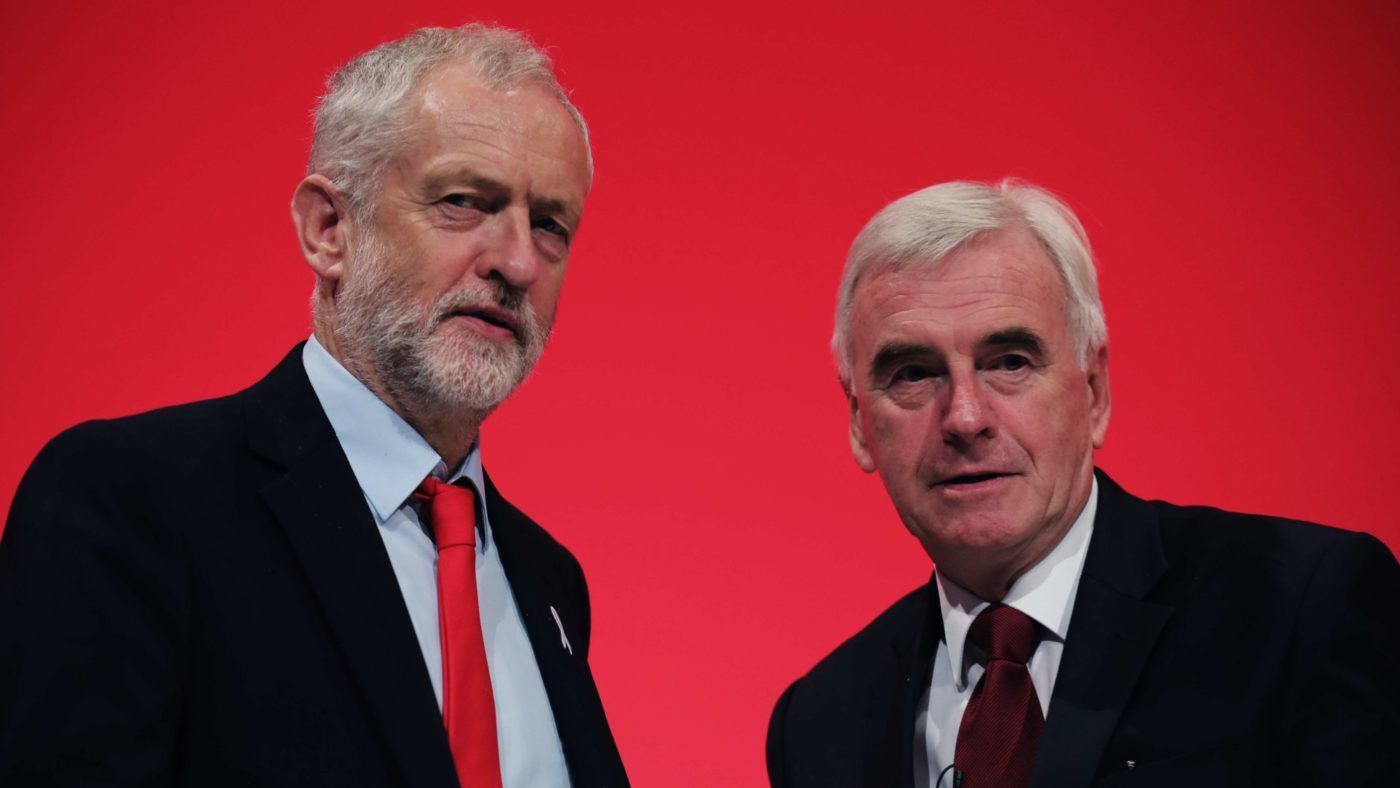Some analysts have compared the remarkable similarity of the three main parties in their general election manifestos. And it is certainly true that in some respects the language they use is distressingly alike. In addition, Jeremy Corbyn has sharpened up his media appearances to such an extent that, despite his historic support for terrorists and his backing of Britain’s enemies, he now comes across as superficially reasonable.
But in other ways, the choice facing the electorate is stark. Take the just-published Labour Party report Alternative Models of Ownership. This sets out a number of hard-left policy proposals which should be feared by all moderate Labour candidates – and should be alienating to all those who are flirting with the idea of voting for one.
This range of policies would destroy the British economy as we know it. It starts by attacking the very concept of private ownership:
“The predominance of private property ownership has led to a lack of long-term investment and declining rates of productivity, undermined democracy, left regions of the country economically forgotten, and contributed to increasing levels inequality and financial insecurity. Alternative forms of ownership can fundamentally address these problems.”
It then goes on to extol the virtues of nationalisation, seemingly forgetting the appalling levels of consumer service, investment and productivity of the old nationalised industries (think British Telecom, British Rail and British Gas):
“National ownership of certain industries promotes long-term planning of the economy, helps to provide modernising infrastructure, quality health and social care, and to combat climate change.”
Co-operative ownership is praised without qualification:
“Cooperative ownership has the ability to increase employment stability and increase productivity levels, as well as making firms more democratic.”
(Try telling that to the employees, customers and investors in the Co-op Bank who, since the extraordinary behaviour and even more extraordinary ignorance of its then boss, the Crystal Methodist, the former Reverend Paul Flowers, now face job cuts, ownership by American hedge funds and a downgrading of their bonds to junk status.)
The report does not attempt to hide the far-left thinking behind its statements. The following quotations speak for themselves and should concern every single voter:
– “Its goal would be nothing other than the creation of an economy which is fairer, more democratic, and more sustainable; that would overturn the hierarchies of power in our economy, placing those who create the real wealth in charge; that would end decades of under-investment and wasted potential by tearing down the vested interests that hold this country back.”
– “The historic name for that society is socialism, and this is Labour’s goal. To begin the process of turning the proposals here into practical and popular policy, further work will be required as a matter of urgency.”
– “The failure of the state, not only to democratise and redistribute wealth, but also to prevent it from sliding away from localities, raises the question of whether alternative ownership models can help to increase economic equality and security.”
It would be easy to pick many more such examples. But the concluding “Next Steps” section gives a lucid sense of the priorities of a Labour Government, under Jeremy Corbyn and John McDonnell:
– “Examine key sectors of the economy which may require national government intervention and undertake or commission work into the practicalities for areas where Labour may want most urgently to develop policy.” (This very much suggests that nationalisation would go far further than just the mail, rail and energy industries.)
– “Draw up a priority list of policies to further develop, including a Right to Own and the role of government in key specific areas, and open consultation with stakeholders (including Party members and trade unions) on bigger and more complex proposals.”
– “Establish ongoing network of activists/experts to discuss issues of governance in collectively/publicly owned organisations.”
– “Prepare a policy document for publication at the earliest possible opportunity.”
Pity the poor Whitehall civil servants who are duty bound to plough through it all with a view to considering how the proposals should be implemented. For despite its thinness and economic illiteracy, much must be done quickly. In the event of a Corbyn victory, they would have the task of preparing “a policy document for publication ahead of the September Party conference”.
It is true that the document carries a disclaimer: “This report is the work of external experts and constitutes a report to members of the Shadow Cabinet. It should not be taken to represent Labour Party policy.”
Yet the Labour Party logo is on the cover page of the document and it is on the Labour Party website. So there must, at the very least, be some sympathy and agreement with the report from at least some of the more prominent members of the current Labour Party.
And if you have any doubts over whether this report is indicative of Labour under Corbyn and McDonnell, ask yourself this question: would Tony Blair, Gordon Brown or Peter Mandelson have ever let this collection of far-left proposals be published as a Labour Party document when they were in charge?


